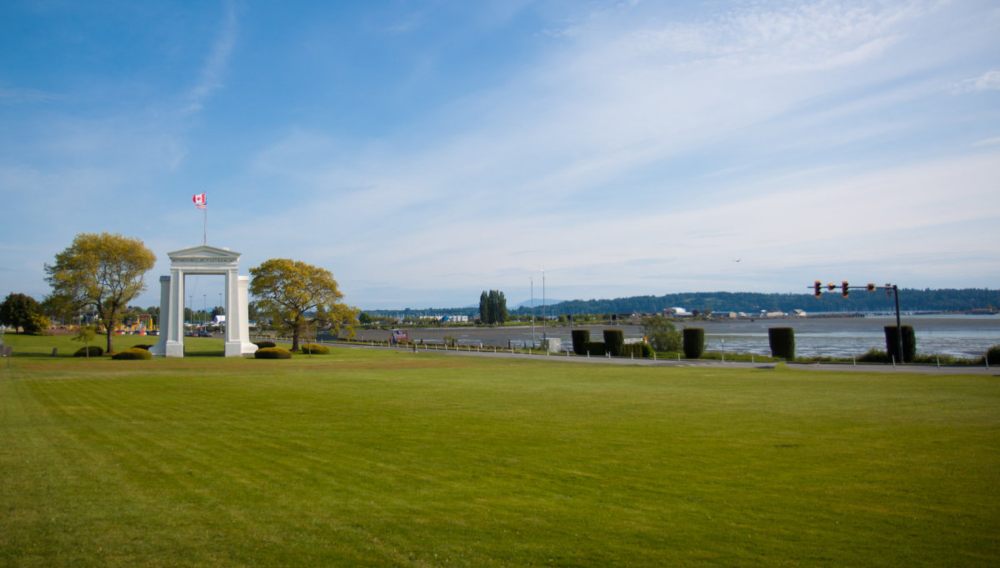
The United States will, in November, reopen its borders to Canada and Mexico to fully vaccinated visitors traveling by land or ferry, ending a closure that began in March of 2020. Unvaccinated travelers will still be barred.
The news comes as vast relief to border communities dependent on visitors from north of the 49th Parallel, particularly cut-off Point Roberts. The Biden administration also announced that beginning in January it will require essential workers crossing the border (e.g. truck drivers, students and health care workers) be fully vaccinated. Essential workers have been allowed to cross during the shutdown but have not been required to be vaccinated.
Washington should not worry about visitors coming from the Great White North. As of Tuesday, 88.8 percent of British Columbians over the age of 12 have received at least one shot, with 82.6 percent fully vaccinated. The vaccination figures for eligible adults are 89.3 percent and 83.3 percent. The province has administered 7,978,015 doses of COVID-19 vaccine since last December.
“With the third busiest crossing on the Canadian border, the state of Washington’s economy suffers when Canadians are unable to travel to the United States,” said Sen. Maria Cantwell. “This announcement will provide great relief to those waiting to so see friends and loved ones and to businesses in Point Roberts and other northern cities and towns hurting due to the decline in Canadian tourism.
The reopening will allow resumption of famous and infamous border rituals. The tiny hamlet of Hyder, Alaska, sits next to Stewart, British Columbia. A tradition is for visitors to walk over from B.C. to the Glacier Inn and try to hold down a shot of 150 proof everclear alcohol. It’s called being “Hyderized” with those who can’t hold it down buying a round for the house.
Canada reopened its land and sea borders to vaccinated Americans on August 9th. In March of last year, the British Columbia government was among the first to press for closure of the border, alarmed that seven of the first 10 confirmed COVID-19 deaths were in Washington. Mexico has not closed its northern border during the pandemic.
Rep. Suzan DelBene, D-Wash., who represents towns near and along the border in Whatcom County, said in a statement: “For 19 long months, our border communities have lived in a state of hardship and frustration, waiting month-to-month for news that the northern border will reopen and they could begin moving past this crisis. In that time, families have moved elsewhere, businesses have closed, and some communities are unrecognizable from where they started during this crisis.”
“The administration’s policy now follows the science,” DelBene added.
In his official announcement, U.S. Secretary of Homeland Security Alejandro Mayorkas said the U.S. “will begin allowing travelers from Mexico and Canada who are fully vaccinated for COVID-19 to enter the United States for non-essential purposes, including to visit friends and family or for tourism via land and water crossings.”
He did not give a date in November. Still, the reopenings are particular good news for “snowbirds,” Canadians who spend winters in Florida and other Southern states, and for those who head further south to such destinations as Baja. Even Canada’s gang conflicts have moved to Florida and Mexico for the winter. Canada had a difficult time getting snowbirds home after the border closure went into effect last year.
During the border closure, many separated families have staged meetups, talking across the border at the Peace Arch Park in Blaine and at 0 Avenue in Douglas, B.C.
The border closure was not the only restriction experienced by British Columbians. During the worst of the outbreak earlier this year, when as many as 1,000 new cases were reported each day, nonessential travel was briefly restricted by zones within the province. Vancouver Island was one zone, the Lower Mainland another, and interior British Columbia a third.
British Columbia has won plaudits for its handling of COVID-19, particularly with its daily, lay-it-out briefings by B.C. Health Officer Dr. Bonnie Henry and Health Minister Adrian Dix. The pandemic has hit much harder in more laissez-faire Alberta. It has been treated as serious business in B.C. I sent a message last year to Dix, an old acquaintance, wondering whether an “essential” classification was possible to view and review an exhibit of paintings by renowned Canadian artist Emily Carr at the Royal B.C. Museum in Victoria. Dix fired back with the offer of a book on the exhibit.
